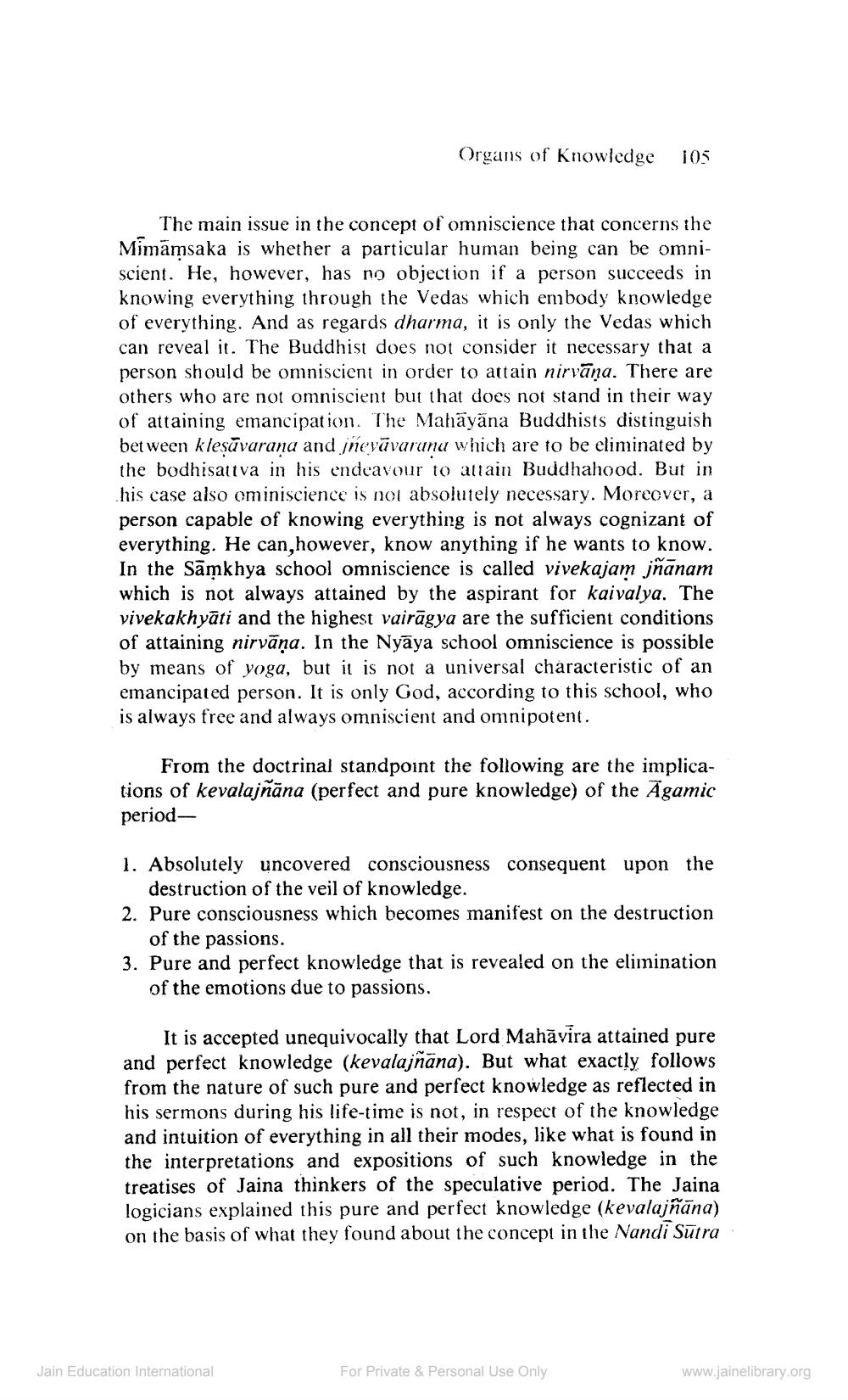________________
Organs of Knowledge
105
The main issue in the concept of omniscience that concerns the Mimāmsaka is whether a particular human being can be omniscient. He, however, has no objection if a person succeeds in knowing everything through the Vedas which embody knowledge of everything. And as regards dharma, it is only the Vedas which can reveal it. The Buddhist does not consider it necessary that a person should be omniscient in order to attain nirvāņa. There are others who are not omniscient but that does not stand in their way of attaining emancipation. The Mahāyāna Buddhists distinguish between kleșăvarana and jnevävarunu which are to be eliminated by the bodhisattva in his endeavour to attain Buddhahood. But in his case also ominiscience is not absolutely necessary. Moreover, a person capable of knowing everything is not always cognizant of everything. He can, however, know anything if he wants to know. In the Sāmkhya school omniscience is called vivekajam jnanam which is not always attained by the aspirant for kaivalya. The vivekakhyāti and the highest vairāgya are the sufficient conditions of attaining nirvāna. In the Nyāya school omniscience is possible by means of yoga, but it is not a universal characteristic of an emancipated person. It is only God, according to this school, who is always free and always omniscient and omnipotent.
From the doctrinal standpoint the following are the implications of kevalajnana (perfect and pure knowledge) of the Agamic period
1. Absolutely uncovered consciousness consequent upon the
destruction of the veil of knowledge. 2. Pure consciousness which becomes manifest on the destruction
of the passions. 3. Pure and perfect knowledge that is revealed on the elimination
of the emotions due to passions.
It is accepted unequivocally that Lord Mahavira attained pure and perfect knowledge (kevalajnana). But what exactly follows from the nature of such pure and perfect knowledge as reflected in his sermons during his life-time is not, in respect of the knowledge and intuition of everything in all their modes, like what is found in the interpretations and expositions of such knowledge in the treatises of Jaina thinkers of the speculative period. The Jaina logicians explained this pure and perfect knowledge (kevalajñāna) on the basis of what they found about the concept in the Nandi Sūtra
Jain Education International
For Private & Personal Use Only
www.jainelibrary.org




